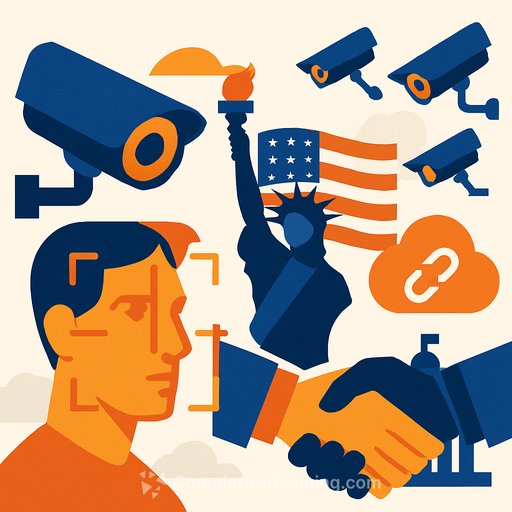AI Surveillance in the US: What Government Workers Need to Know
Recently, a summit gathered top CEOs to discuss renewing American values like faith and freedom. Yet, while these ideals were highlighted, there’s growing concern about how government surveillance is quietly expanding at home, putting those very freedoms at risk.
The US federal government is increasingly collecting personal data on hundreds of millions of citizens. This data surge is happening alongside advances in artificial intelligence, making privacy more vulnerable than ever.
Who's Behind the Data Collection?
It’s not just the National Security Agency (NSA) anymore. Silicon Valley’s tech giants are heavily involved, but a lesser-known player is quickly becoming a key force: Palantir. This company has seen a sharp rise in federal contracts, receiving over $113 million since January, plus a massive $795 million Defense Department deal in May.
Palantir is now working with multiple government agencies, including the Social Security Administration and the Internal Revenue Service, to implement its data tools. Their technology infrastructure supports expanding data sharing between agencies, which raises red flags about privacy and oversight.
AI Tools That Could Be Weaponized
Palantir’s AI technology isn't just a data aggregator. It tracks individuals in real time and builds systems that could power a full surveillance state. Former employees warn of serious privacy concerns, especially as AI capabilities grow.
Palantir’s software is already used in military and law enforcement contexts. For example:
- Israeli Defense Forces use it for targeting in conflict zones.
- The U.S. Defense Department analyzes drone footage with it.
- The Los Angeles Police Department applies it to forecast crime patterns — a practice known as predictive policing.
This raises troubling questions about the potential for misuse. History shows government overreach is a real threat: the NSA’s mass telephone surveillance and warrantless wiretapping from 2001 to 2007 demonstrate how privacy can be eroded under the guise of security.
Big Tech and Big Government: A Risky Alliance
The collaboration between government agencies and companies like Palantir and OpenAI is expanding. OpenAI recently launched a government-focused initiative to provide AI tools to federal, state, and local leaders, citing national security readiness. But what does that mean in practice?
These partnerships often lack transparency and accountability. The risk is clear: political dissidents and ordinary citizens could become targets of intrusive profiling. AI systems are not infallible. Errors or misuse could lead to serious civil rights violations.
For those working in government, understanding these developments is critical. The balance between security and individual freedom is at stake. It’s essential to question how AI-driven surveillance is shaping policy and practice—before the consequences become irreversible.
Learn more about AI's impact on government and security at Complete AI Training’s courses for government professionals.
Your membership also unlocks:





